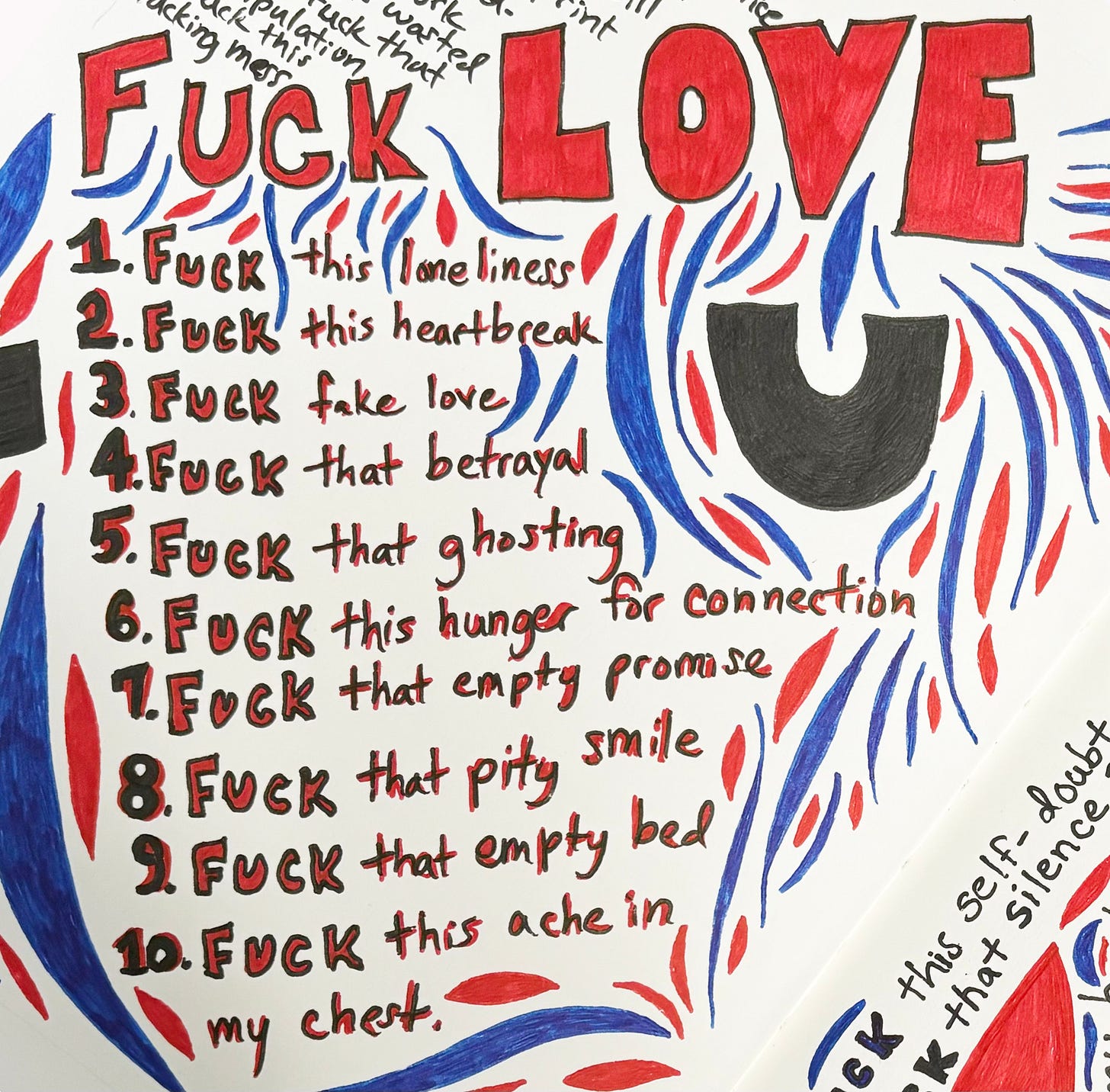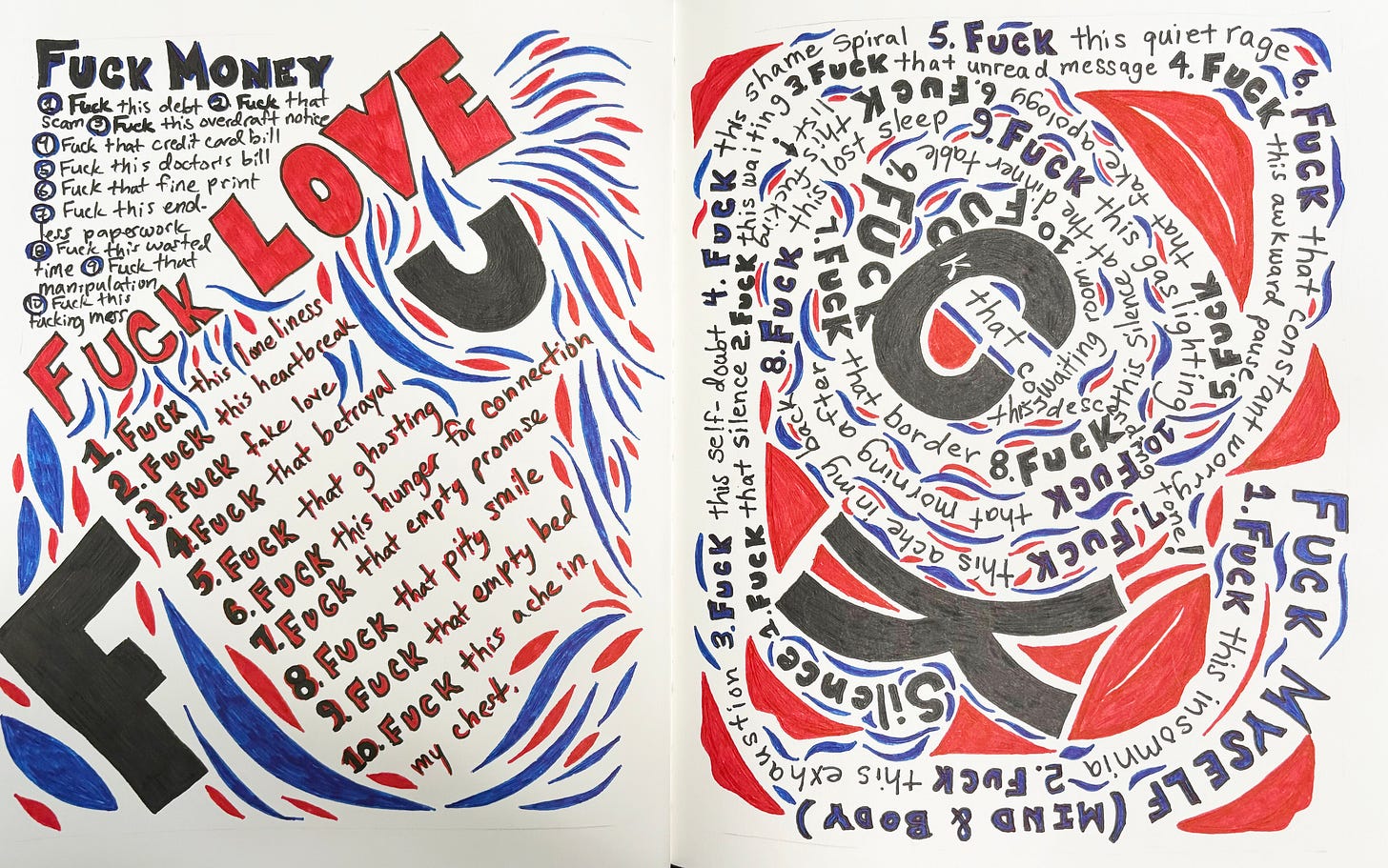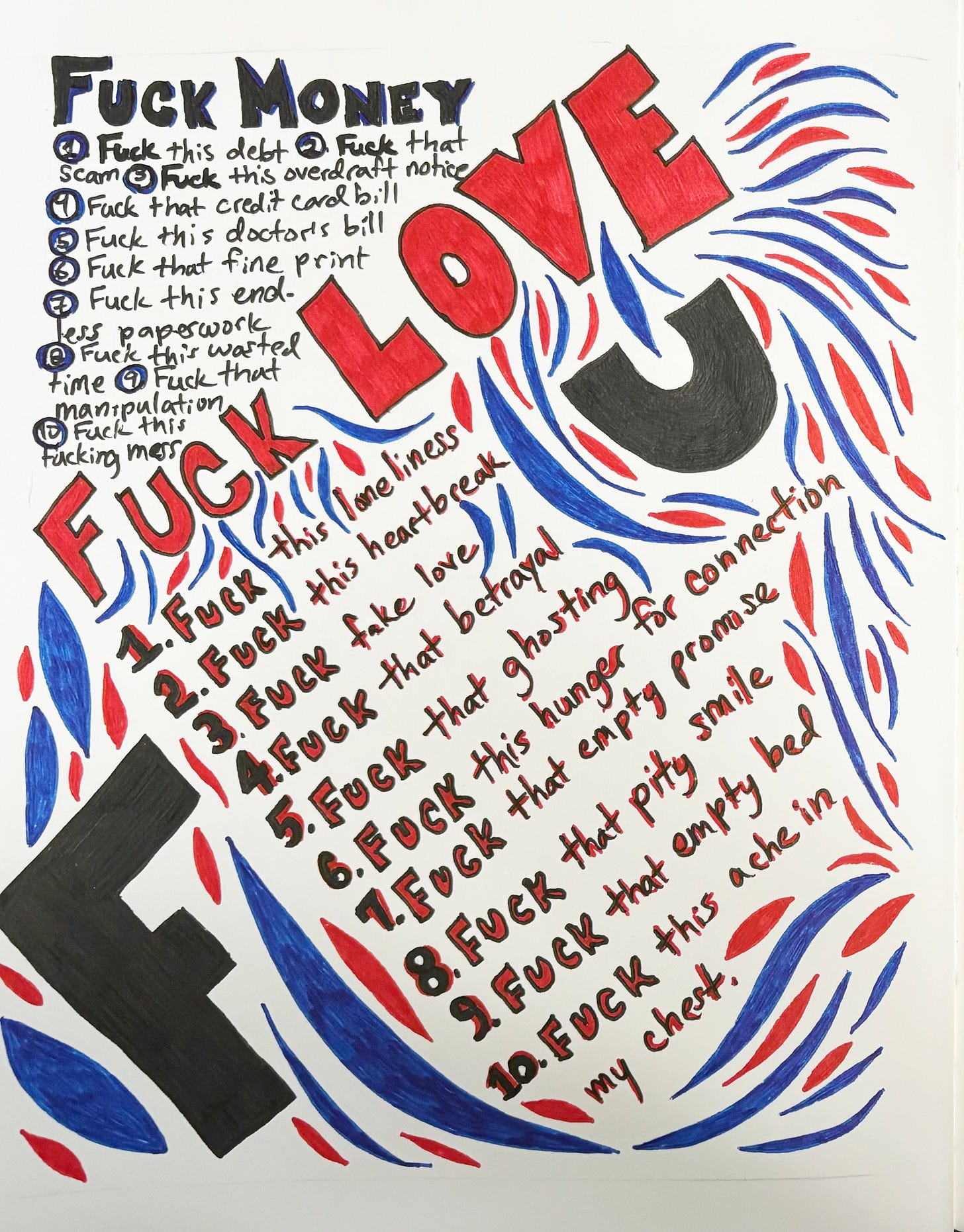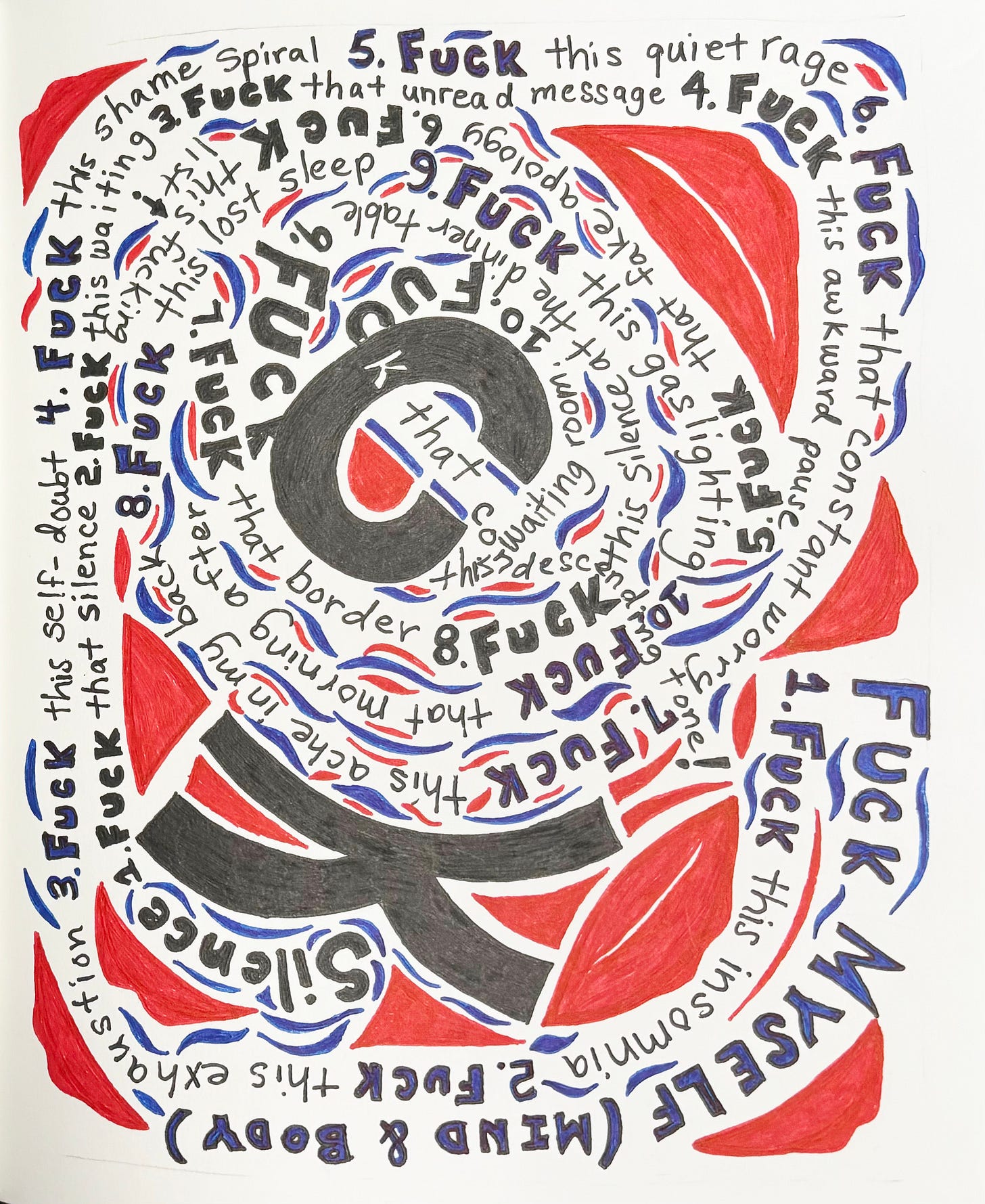Ghosted, Again
What It Feels Like to Start Over, and Be Erased Again
Note from the writer: I didn’t plan on writing about ghosting twice in a row. But it happened again, and this one came out of nowhere. I thought she was steady, I thought we were building something. Instead, silence. It still stings, and I want to put it down here while it’s fresh.
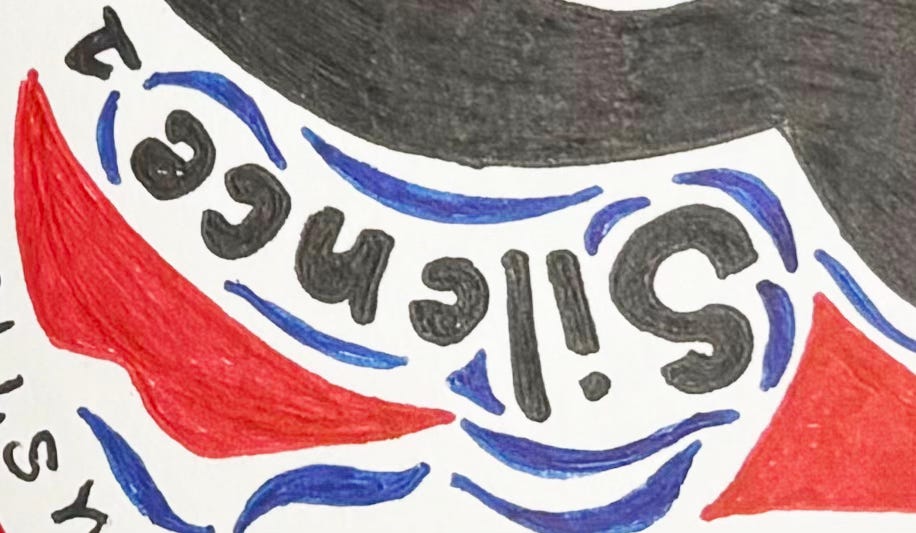
Ghosting 101
In my previous post, I wrote about ghosting — how it leaves you holding all the silence, all the weight. I still believed that the next connection might be different. This
week proved me wrong. What I thought was real turned into four days of nothing. And now I’m more jaded, more guarded, less willing to trust.
I’ve written before about ghosting. I said then what I’ll repeat now: it’s not just rude, it’s dehumanizing. It leaves the other person holding all the weight, all the questions, all the silence. This time felt different — and that’s exactly what makes it worse.
From the very beginning, there was energy. Priya told me, “I’m having so much fun chatting with you!” She said, “Delighted to meet you. Let’s go for a phone call soon, what do you think?” She promised, “I’ll text from a 510 number. I’m going to a jazz festival for the weekend with my folks, but I can call once we’re settled. I’ll send groovy pix.”
These weren’t throwaway lines. They were markers of someone who wanted to connect, who was imagining what might come next. And I matched that energy. I told her, “Good night. Looking forward to so much more. You made my day.”
This wasn’t surface-level banter. We went deep quickly. We talked about art, yoga, family, and music. Priya told me about her mixed heritage — half Indian, half German — and about training in yoga in the very same city where I once lived for three years. She told me about sacredness, about growing up in California, about her love of live music.
Ghosting 102
I told her about my own path, about leaving academia, about my art. We compared notes on long marriages, both of us admitting how strange it felt to even be on a dating site. There was relief in that exchange: two anxious people, both starting over after decades, both acknowledging the weirdness.
It felt rare. It felt alive.
And then: nothing.
Friday, Saturday, Sunday, Monday. Silence.
I sent two simple “good morning” messages. Not pushy, not overbearing — just small signs of interest, little openings. Both went unanswered.
That silence grew heavier each day. My mind ran circles: maybe she was traveling all day, maybe she was stressed with work, maybe something happened. But by the fourth day, the only thing that seemed clear was that Priya wasn’t going to reach out.
What makes it brutal is the contrast. To go from “I’ll text you from 510, we’ll talk soon” to nothing at all isn’t just a change of mind — it’s an erasure. And when you’ve opened yourself, it feels like the floor dropping out.
Communication Breakdown
And here’s the kicker: Priya is an attorney. The first person who ghosted me was a clinical psychologist. You’d think people trained in communication, ethics, and responsibility would be the ones least likely to vanish. But here I am again.
I’ve thought a lot about status since leaving academia. I worked hard to become a professor — the first in my family to go to college, then on to a Master of Divinity and a PhD. It took years of sacrifice, and sometimes when people flattened that into, “Oh, you’re a teacher?” it stung. I wanted to shout, “No, I’m a professor — do you know how many years it took me to get here?”
So maybe I still put weight on those markers of status when I meet someone new. Attorney. Psychologist. Prestige, at least on paper. But the truth is, none of it seems to matter when it comes to ghosting. Credentials don’t protect against silence. Education doesn’t guarantee honesty. Everyone seems to do it.
And that’s what makes it corrosive.
Same as It Ever Was
Maybe that’s the worst part of ghosting. Each time it happens, it feels like something new, something different — until it doesn’t. You tell yourself, “This one’s real, this one’s alive.” And then the silence comes.
Like the Talking Heads song keeps repeating: “Same as it ever was. Same as it ever was.”
That’s how ghosting feels — no matter how much you hope this time will be different, the silence brings you back to the same place.
Ghosting isn’t just about one person disappearing. It’s about what it leaves behind: the questions, the self-doubt, the erosion of trust.
Maybe Priya meant every word she said in the moment. Maybe she really did have fun chatting with me, and she really did imagine a call, and she really did think she’d send me pictures. And maybe, somewhere along the way, she changed her mind. That’s allowed. People are allowed to change their minds.
But ghosting takes the easy way out. It leaves the other person holding all the weight of the silence, with no closure and no explanation. It makes you wonder what you did wrong, even when the real answer has nothing to do with you.
Each time it happens, it chips away at hope. It makes the next connection harder to believe in. It leaves you more jaded, more guarded, less willing to trust.
That’s the real damage of ghosting — not just the silence itself, but the way it corrodes the possibility of future connection.
If you’re not interested, say so. It takes thirty seconds. It’s harder in the moment, but it’s kinder in the long run.
Silence
Silence is not neutral. Silence speaks volumes.
This one wasn’t supposed to be just another one. It felt different. But here I am. Ghosted, again.
But here’s what I also know: this won’t stop me. Ghosting may chip away at trust, but it won’t break my work or my purpose. I’m still building my illustrated memoir, still shaping a course on art as spiritual practice, still writing here on Dating App Diaries and over on my Aspie Art Journey blog.
The silence doesn’t get the last word. I do. I’ve even seen profiles on dating apps that say it outright: “If ghosting is your pattern, don’t bother.” Some write it harshly, some more gently, but the message is the same: ghosting is unacceptable.
Maybe I’ll borrow that line for my own profile—something like, “If you’re not interested enough to commit, then don’t connect at all.”
Part of me still worries that something actually happened to her, because the silence feels so out of place.
But that’s the thing I keep learning: ghosting has no rules. It can arrive after hours of laughter, after plans are made, after promises are spoken. And when it does, you’re left holding both possibilities at once — that nothing’s wrong except the fact that she chose to disappear, or that something truly did happen and you’ll never know.
Either way, the silence wins.
Moving Ahead
But here’s the difference: I’m not disappearing. I’m still here, still making, still pushing forward. The silence may win in her inbox, but it doesn’t win here. Here I write, here I draw, here I build the memoir, the blog, my art practice, and the course on artmaking as spiritual practice.
That’s my answer to ghosting — not to vanish, but to keep showing up.
So if silence is the pattern, then here’s mine: I create. I write, I draw, I teach, I tell the truth.
Ghosting may erase a message thread, but it won’t erase me. Not my memoir, not my art practice, not the course I’m building, not this journey.
That’s the work, and it doesn’t vanish.


